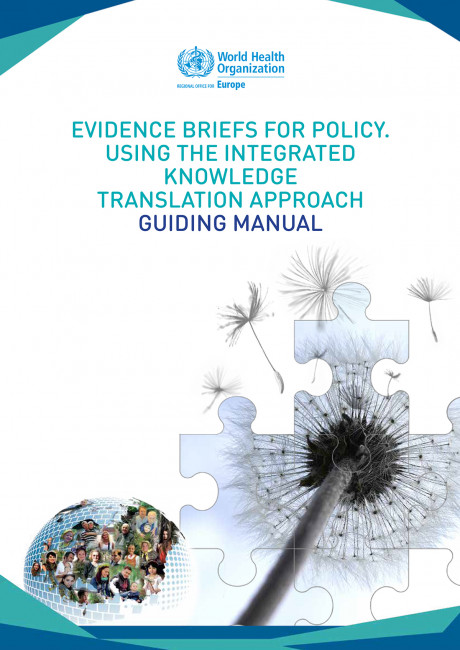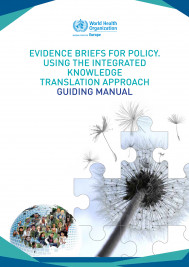Evidence Briefs for Policy (EBPs) are a relatively new, innovative approach to packaging research evidence for policy-makers; however, they are already the most widely used tool. EBPs are prepared by synthesizing and contextualizing the best available evidence about a problem, viable solutions to address it, and key implementation considerations, through the involvement of content experts, policy-makers and stakeholders, EBPs should be seen as being part of an integrated knowledge translation approach to catalyse EIP and improve health outcomes.
Such an approach is characterized by:
(1) being impact oriented;
(2) starting with priority-setting of the health problems/issues;
(3) enabling evidence synthesis, such as developing systematic reviews, and;
(4) moving onto packaging the evidence via knowledge translation tools such as EBPs; as well as
(5) working on knowledge uptake via citizen engagement, advocacy and policy dialogues to increase the likelihood of policy influence and improved health outcomes.
Policy dialogues are important cornerstones of the knowledge translation approach and supplement the EBP. Policy dialogues facilitate deliberations around the research evidence, support the contextualization of the research evidence and enhance the possibility of research uptake by further engaging high-level stakeholders who are most likely to take action.



